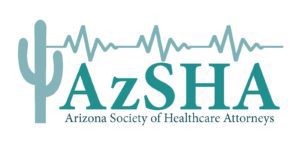OIG Issues Favorable Advisory Opinion Confirming the Broad Scope of the Anti-Kickback Statute’s Employment Safe Harbor
By Marki Stewart, Coppersmith Brockelman
In a landmark Advisory Opinion, the U.S. Department of Health and Human Services’ Office of the Inspector General (“OIG”) confirmed its expansive view of the Anti-Kickback Statute’s employment safe harbor this week, providing much-needed clarity on how physicians may be compensated for revenue they generate for their employer.
In Advisory Opinion 23-07, the OIG considered a request from an employer that operates a multi-specialty physician practice and two ambulatory surgery centers (“ASCs”). The employer proposed to provide a bonus to each employed physician consisting of 30% of the employer’s net profits from the ASCs’ facility fee collections attributable to that physician’s surgical procedures performed at the ASC. The employed physicians’ bonus would therefore vary with the volume and value of procedures performed at the employer’s ASCs. The OIG concluded that the proposed arrangement would fall within the employment safe harbor, and therefore, would not be subject to Anti-Kickback Statute liability.
The Anti-Kickback Statute prohibits any person from paying or receiving remuneration in exchange for patient referrals covered by a federal health care program (such as Medicare or Medicaid). Payments that vary with the volume or value of a physician’s referrals are generally considered to be high risk. However, the Anti-Kickback Statute has a safe harbor for employees, stating that “remuneration” does not include “any amount paid by an employer to an employee, who has a bona fide employment relationship with the employer, for employment in the furnishing of any item or service for which payment may be made in whole or in part under Medicare, Medicaid or other Federal health care programs.” The employment safe harbor therefore states generally that remuneration does not include payments to bona fide employees; however, the extent of that safe harbor, and whether employees’ compensation may be directly tied to profits from other service lines operated by the employer, was unclear until Advisory Opinion 23-07 was issued.
In approving the proposed arrangement at issue in 23-07, the OIG concluded that the employment safe harbor protected the bonus payments because: (1) the physicians subject to the bonus plan are bona fide employees (as opposed to independent contractors or other types of nonemployees); and (2) the employment safe harbor is broad enough to cover compensation tied to profits the physician generates for a separate service line—the ASCs—owned by the employer.
The OIG noted, however, that a similar arrangement under a different corporate structure may raise fraud and abuse concerns under the Anti-Kickback Statute. The OIG goes on to state that an arrangement where “physicians were owners of the ASCs and paid themselves the bonuses contemplated by the Proposed Arrangement as ownership distributions” may raise fraud and abuse concerns. Indeed, a series of separate safe harbors applicable to ownership interests in ASCs require that payments to physician owners are based on the physician’s investment, not the volume or value of their referrals to the ASCs. Therefore, physician owners of ASCs still may not receive remuneration that is based on their referrals, unlike employed physicians.
It is important to note that the ASCs were owned directly by the employer’s corporate entity. If the ASCs were owned by a separate entity (even an entity wholly-owned by the employer), the employment safe harbor would not extend to compensation paid by that entity to the employed physician.
Advisory Opinion 23-07 is a watershed opinion because: (1) it confirms that the employment safe harbor broadly allows employed physicians’ compensation to be tied directly to volume or value of the business they generate for their employer; and (2) it establishes that the employment safe harbor would cover compensation that is based on facility fee collections from a discrete corporate division of the employer, and is not limited to the employer’s collections for physicians’ professional fees. Health care employers with multiple lines of service and who receive facility fees (including hospitals) now have clear guidance on how to structure employed physicians’ compensation in a manner that does not violate the Anti-Kickback Statute.
